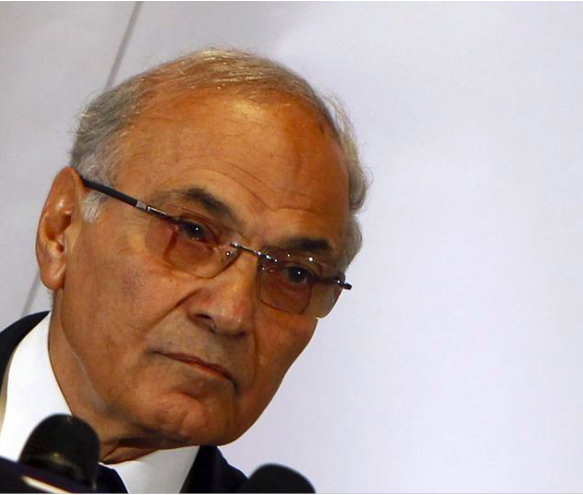[Editor's note: The March 2011 constitutional amendments stipulate that if presidential candidates, or their spouses or parents, hold any foreign nationality they are ineligible to run for Egypt’s presidency. Controversy over the nationality of the Salafi presidential candidate Hazem Salah Abu Ismail’s mother has brought this clause to the test. He denied his late mother held American nationality in addition to her Egyptian citizenship and sued the Ministry of Interior for falling to provide him with proof upon his request that his mother held only Egyptian citizenship. Yesterday, the court ruled that the ministry must provide proof that his late mother did not hold dual citizenship. The ruling, however, does not conclusively prove that his mother did not hold another nationality. What the ruling proves is that the mother did not officially register her American citizenship, if she did have one, with the ministry, which is not an uncommon practice. The court ruling brings the debate back to square one, since other entities, such as Egypt’s Ministry of Foreign Affairs, or the American Embassy in Cairo could still prove that Abu Ismail’s mother did hold dual citizenship. The final say, however, lies with the Presidential Elections Commission. This article was written prior to yesterday’s court ruling.]
A few days ago I wondered what fertile imagination conjured up the story about the American citizenship of presidential hopeful Hazem Salah Abu Ismail's mother. I had these thoughts a few days ago before the nationality affair prompted serious investigations into the issue, which was no longer just a rumor. The ongoing probe will determine the fate of the presidential bid of the most controversial presidential candidate.
Imagination has beaten reality and it still is, thanks to the revolution. This may be a romanticized image of the revolution, but it is the key to a serious understanding of what is happening now at this critical time when also sick imagination is unleashed.
Abu Ismail's campaigners are the most vigorous subscribers to "Islamist popular imagination" with all its ambitions and maladies. I acknowledge, though, that their mottoes of "We will live with dignity" and " Don't miss the pivotal moment" are the best presidential campaign mottos. These slogans reflect the revolutionary imagination, but they also threaten to bring about catastrophic consequences. In fact, Abu Ismail's project for a "respectable" state threatens to entrap the ideas that these mottos call for within the confines of its disciplinary maze of radical revolutionary and conspiracy-laden authoritative imagination.
I will show below that if we are to look at Abu Ismail’s presidential campaign, we will realize that its conspiratorial imagination is the most fertile.
Abu Ismail's family, like those of several other Islamists, had traveled to the US and other European countries to escape the oppression they, as strict Salafis, were subjected to by their own governments. However, this has not served to make many of them appreciate these countries’ respect for human rights that ironically allowed for harboring a category of "jihadists" who are struggling to establish regimes that do not respect human rights.
The sick imagination that motivated many of those ultra-orthodox Islamists to take refuge in the West, provides them with justification to willingly live on those Western countries' territory and exploit the freedoms they grant in the thought that it is some sort of booty that can be seized from a foolish enemy they conceive as conspiratorial and Islamophobic.
Their conspiratorial mindset makes them unable to distinguish between Western groups with imperial ambitions, who wish to impose their hegemony on the world, and others aspiring for freedom, who could go as far as to help their very own enemies — in this case the Islamic fundamentalists— when they are subjected to oppression.
As soon as news about the alleged American nationality of Abu Ismail's late mother began circulating in the media, some of his proponents started to imply that it was inappropriate to discuss her nationality in the open. Furthermore, the officials in charge of his presidential campaign said that any official documents claiming she has American citizenship would only be part of an American conspiracy against Islam.
Abu Ismail himself pointed out that the Brooklyn Mosque Imam — who told the media that Abu Ismail's mother was American — “is Shia and one of the men of Iran.”
The pinnacle of sick imagination comes to light when claiming that the nationality affair is a conspiracy between the US and Iran against Sunni Islam.
The epitome of ironies, however, comes to play when we realize that the severe conditions required for presidential candidates — and which disqualify a candidate if either of his or her parent's obtain a foreign nationality — were opposed by secularists and accepted by Islamists, who are obsessed with their war with the West. More appropriately, their war should have been waged against tyranny and obstacles hampering political participation.
But the candidate deemed the most revolutionary and sincere to the strict adherence to the orthodox Islamist project — in a way that scares the reformist Muslim Brotherhood which adopts a gradual approach to change — is threatened to be ousted from the presidential race particularly because of a “fascist” clause that Islamists hailed for, assuming it would oust the “Western-friendly” secular competitors.
But the conspiratorial imagination of Abu Ismail’s campaign goes on to target the more moderate and less revolutionary Brotherhood, believing that the latter is conspiring against Islam.
Several of Abu Ismail’s supporters claim that the latest nomination of Brotherhood leader Khairat al-Shater is yet another conspiracy to thwart the Islamic project, one organized by the Brotherhood to splinter the pro-Islamist votes. In fact, it seems that the Brotherhood nominated Shater to protect the moderate Islamist project from the threat of the military and former regime figures running in the election, as well as from the radicalism of Abu Ismail.
Abu Ismail’s campaigners’ imagination is so densely draped in conspiracy that I wonder if any of them will believe me when I say that I remain opposed to the constitutional amendment that now threatens to disqualify their preferred nominee from the race.
Will they believe that I am genuinely sad that the sick imagination of their campaigners might not get a chance to be put to the test in a democratic space and might soon revert to the confines of sick conspiracy theories, and grow in the shadow margins of society?
With a twist of fate, what Abu Ismail’s supporters once perceived as favorable constitutional amendments will eventually spell their death in a Shakespearean-style scenario. Much like Shakespeare’s Hamlet, who questioned his very existence, Abu Ismail and his followers are waiting tensely for the truth about the nationality of his mother to come out; a revelation, which could thwart the entire radical Islamic project if the woman turns out to be American.
Translated from Al Masry Al Youm by Dina Zafer


